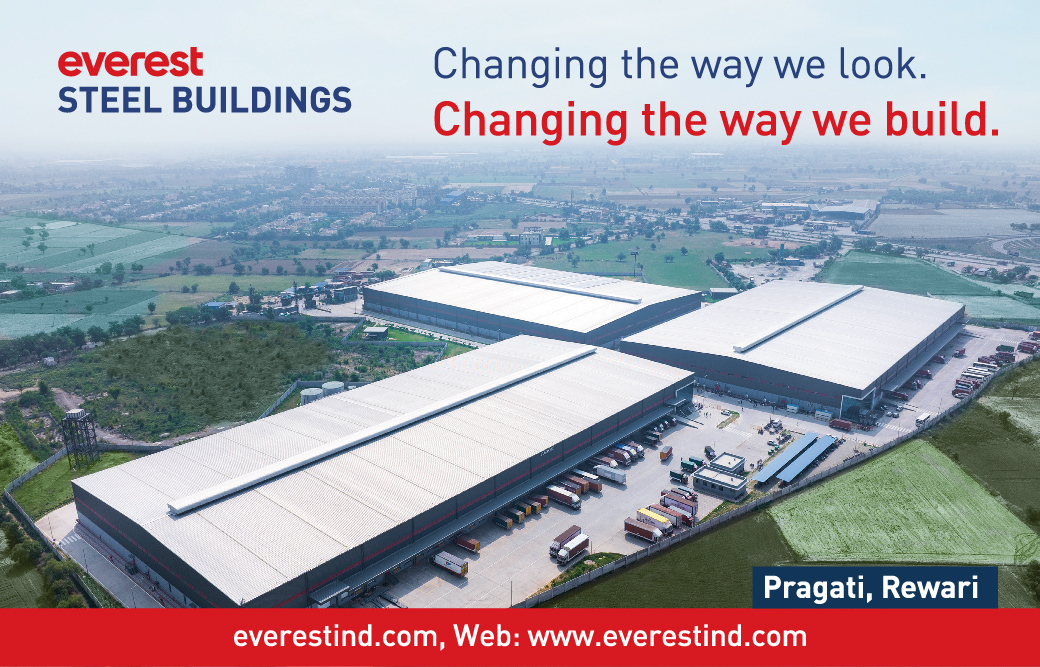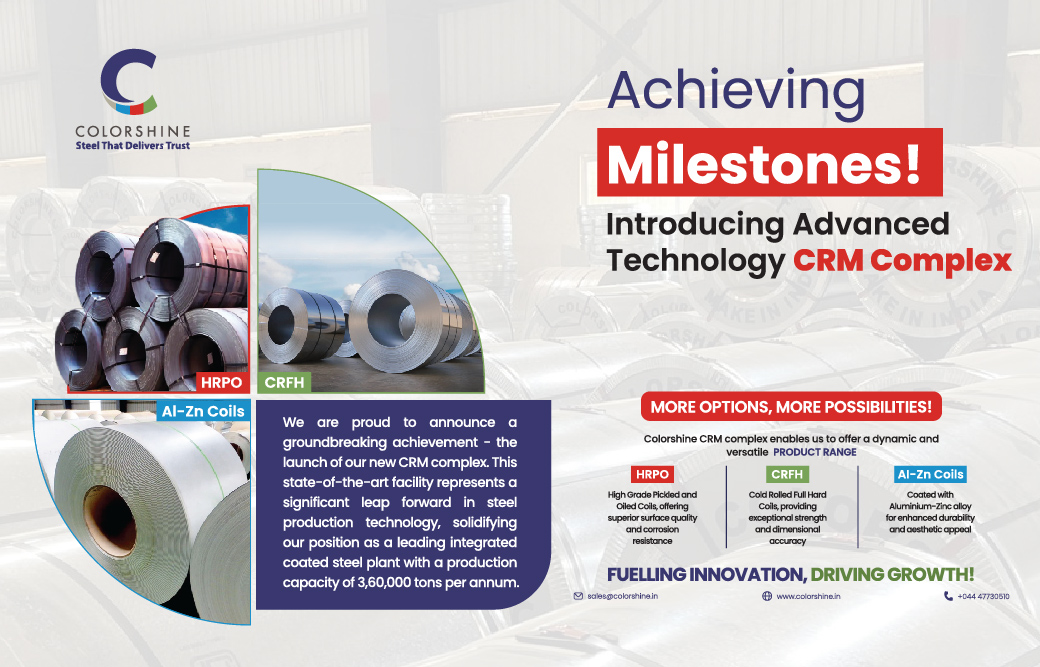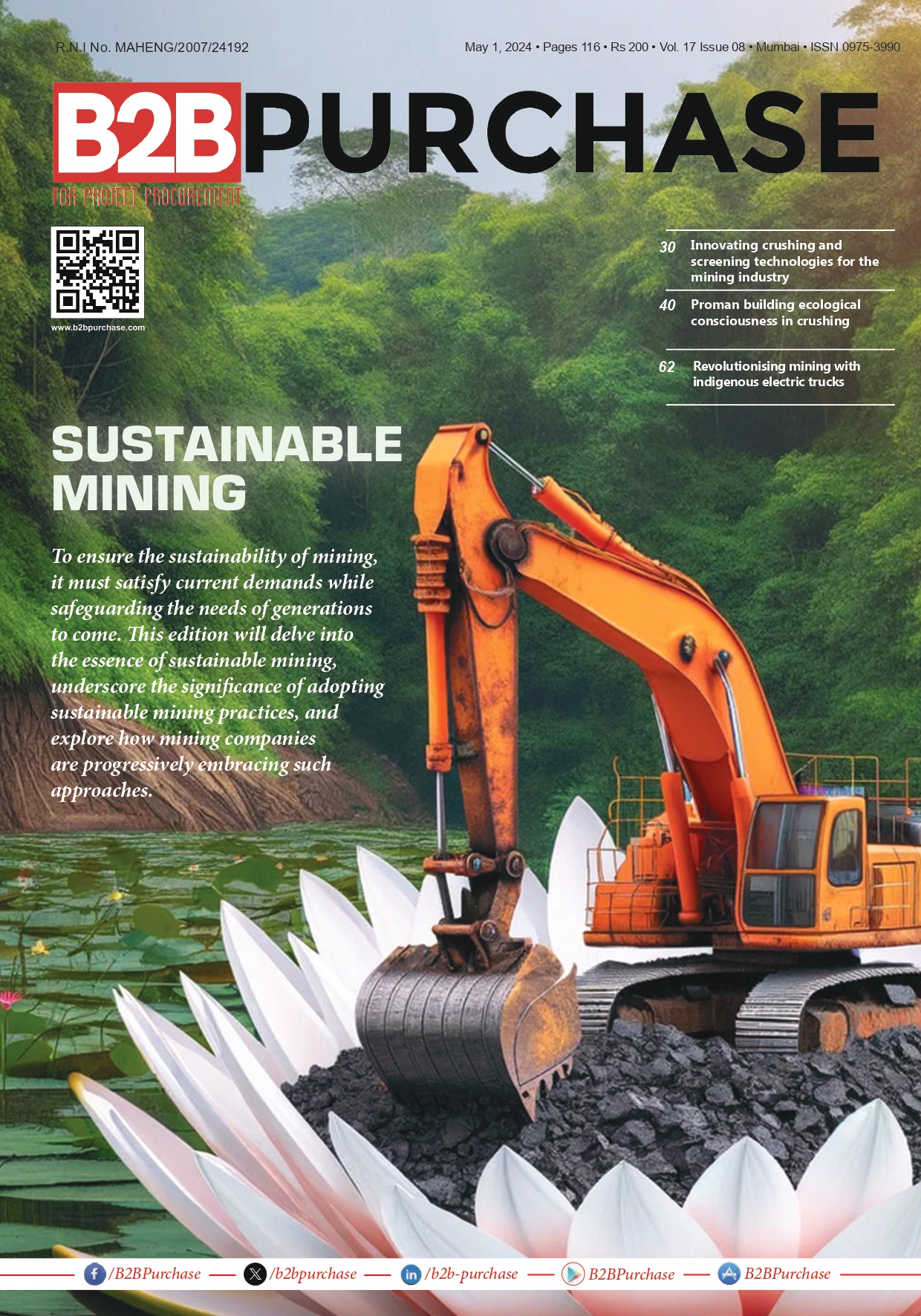Volvo Construction Equipment is one of the leading solution providers in road building equipment. Working continuously in heavy and light construction, quarries, aggregates, infrastructure, utilities, pipelines, forestry, demolition, road construction, material handling, recycling and more means Volvo CE offers solutions to its customers.
Its product range includes loaders, backhoes, excavators, small excavators, artics, forestry carriers, demolition machines, high reach demolition machines and pipelayers. In an interview with B2B Purchase, A M Muralidharan shares his views about new projects proposed by government and recent procurement trends in industry.
Road Ministry targets building 25-km of roads per day. How do you look at this opportunity?
Earlier, the target was to build 8,500-kms of road per day but now it is 25-kms per day, and this is possible provided proper pre-planning is done. Pre-planning would include having all legal approvals for the construction of roads and then the complete handover of the land to the contractor apart from resources like availability of sand, asphalt etc.
Is it an achievable target? How different it’s going to be from the UPA II government’s target?
The objective of the current government is to make sure that all the pre-planning gets done on time and according to the policies set by the government, which was how even the previous government functioned however the execution level was very poor. Also, when the project would start, the land availability to the contractor would be only 20-30 per cent; unless it goes around 80-90 per cent, delay in projects will always take place.
Taking lessons from the previous government’s failure in execution, the execution of this government has to be better if we have to achieve the target.
What are the challenges that need to be addressed to achieve the desired target?
First, the land acquisition bill, which was passed last time, is definitely not encouraging for infrastructure projects. Therefore all the land required for infrastructure or road building needs to be procured well in advance making it one of the major challenges.
The second challenge is the repatriation of people. We have different formulas that work with the government, state government, local parties.
Acquiring raw material is also a challenge in some states as they have banned all quarries. How can one lay road without having a quarry or an aggregate nearby? The resource availability for every project hence needs to go through the state government approval. This has to change.
What kind of road-building equipment are going to drive the growth?
Some of them will be compactors, soil, asphalt, pavers, graders, and crushers. So once the land acquisition is done, we will see the demand grow for these products.
How do you look at the current trends in procurement as far as road-building equipment are concerned?
The market for the last one year has been down by 25-30 per cent for road equipment. There are some pockets where we have seen the road equipment segment growing because of the state roads being re-built by the local government and we are looking forward to the National Highway road construction.
The processes are quite well set in India though financing is becoming slightly difficult at this stage of the market. Therefore we highlight standardisation of our products and components in order to move forward. China is scoring very well compared to India in this area.
How industry-friendly are the procurement guidelines for PPP projects?
The PPP projects are guided like any other projects. There is no different procurement guideline because the specifications are the same. However, implementation is much faster for PPP projects. There are private contractors who take decisions faster as they are fully aware of the products available in the market.
What sort of procurement technology you use? And how do you evaluate its performance?
We have an internal SAP based process and system, which includes suppliers identification team and suppliers development team. Evaluation of performance is on continuous basis as our supplier development team has built a strong connection with the suppliers. Supplier selection is in fact a major step for us instead of just giving drawing or floating tenders for every component.
Once we identify and register the suppliers, we send them all the drawing tenders, a transparent process that is also easier and faster. When the supplier is registered, we categorise the same as per our lists of monthly suppliers and yearly suppliers. These suppliers are also available to supply anywhere else in the world for us.
Finally, according to you, what are the points a customer must consider while procuring road-building equipment?
One is the cost of operation and maintenance. Second is the reliability and quality of the product. Third is whether the price of the products is good for the work they are doing. Fourth is suitability of equipment for their kind of work.
There are some people who maintain the machine very well, and there are some who just want to keep running the machine. So they need to understand which product will suit them based on their way of managing
the machines.
The processes are quite well set in India though financing is becoming slightly difficult at this stage of the market. Therefore we highlight standardisation of our products and components in order to move forward.
– A M Muralidharan, President, Volvo Construction Equipment, India
Cookie Consent
We use cookies to personalize your experience. By continuing to visit this website you agree to our Terms & Conditions, Privacy Policy and Cookie Policy.


















